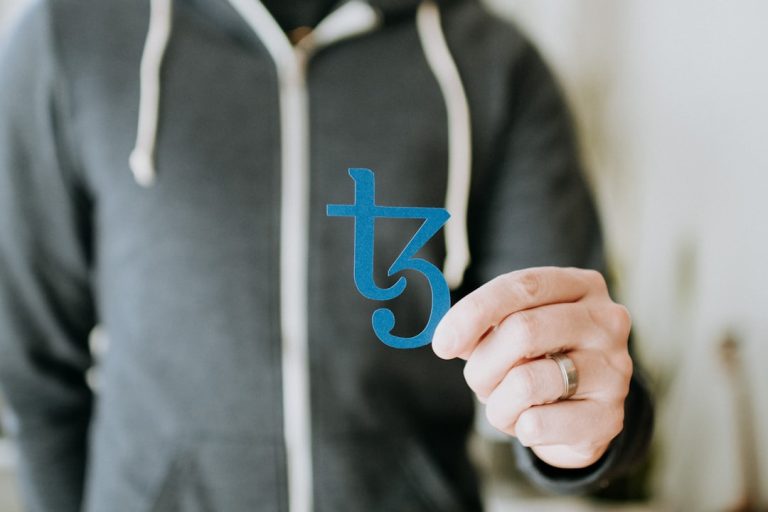
Vocabulary building is a fundamental aspect of language acquisition and mastery. A robust vocabulary not only enhances communication skills but also enriches one’s understanding of the world. Words are the building blocks of language, and having a diverse lexicon allows individuals to express themselves more precisely and effectively.
For instance, consider the difference between saying “very big” and “enormous.” The latter conveys a stronger sense of size and impact, demonstrating how nuanced vocabulary can elevate communication. Moreover, a strong vocabulary is closely linked to cognitive development. Research has shown that individuals with a rich vocabulary tend to perform better in reading comprehension and critical thinking tasks.
This is because a well-developed vocabulary enables learners to grasp complex concepts and engage with texts on a deeper level.
Thus, investing time in vocabulary building is not merely an academic exercise; it is a crucial component of personal and professional growth.
Key Takeaways
- Building a strong vocabulary is essential for effective communication and comprehension in any language.
- Dialogues can help improve vocabulary by providing context and real-life examples of language usage.
- When choosing dialogues for learning, it’s important to select ones that are relevant to your interests and daily life.
- Techniques such as repetition, active listening, and using flashcards can enhance vocabulary learning through dialogues.
- Incorporating dialogues into daily practice, such as through language exchange or watching movies, can reinforce vocabulary acquisition.
How Dialogues Can Help
Dialogues serve as an effective tool for vocabulary enhancement, providing context and practical application for new words. Engaging in conversations—whether through scripted dialogues or spontaneous exchanges—allows learners to see how vocabulary functions in real-life situations. This contextual learning is vital because it helps individuals understand not just the meaning of words but also their connotations and appropriate usage.
For example, encountering the word “meticulous” in a dialogue about a detail-oriented artist can help learners grasp its significance more profoundly than if they merely read the definition in a dictionary. Furthermore, dialogues can facilitate active learning, which is essential for retention. When learners participate in conversations, they are not passive recipients of information; instead, they actively engage with the language.
This interaction encourages them to think critically about word choices and sentence structures, reinforcing their understanding of vocabulary. For instance, if a learner uses the word “exemplary” in a discussion about leadership qualities, they are more likely to remember it because they have applied it in context. This experiential learning approach makes vocabulary acquisition more dynamic and memorable.
Choosing the Right Dialogues

Selecting appropriate dialogues is crucial for effective vocabulary building.
For beginners, simple dialogues that incorporate everyday vocabulary can be beneficial.
For example, conversations about daily routines or common activities provide a foundation for essential words and phrases. As learners progress, they can move on to more complex dialogues that introduce specialized vocabulary related to specific fields or topics of interest. In addition to relevance, the authenticity of the dialogues plays a significant role in their effectiveness.
Authentic dialogues—those that reflect real-life conversations—help learners understand how language is used in various contexts. This could include dialogues from movies, podcasts, or literature that resonate with the learner’s experiences or aspirations. For instance, a dialogue from a popular film might introduce slang or idiomatic expressions that are commonly used among native speakers, offering insights into cultural nuances that textbooks often overlook.
Techniques for Learning Through Dialogues
| Technique | Description | Benefits |
|---|---|---|
| Think-Pair-Share | Students think individually, pair up to discuss, and then share their thoughts with the whole class. | Encourages active participation and collaboration, improves critical thinking skills. |
| Socratic Seminars | Students engage in a formal discussion based on open-ended questions. | Develops communication skills, promotes deep understanding of the topic. |
| Role-Playing | Students act out characters or situations to explore different perspectives. | Enhances empathy, fosters creativity, and improves problem-solving abilities. |
| Debates | Students argue for or against a specific topic, presenting evidence and reasoning. | Enhances critical thinking, research skills, and public speaking abilities. |
There are several techniques that learners can employ to maximize their vocabulary acquisition through dialogues. One effective method is the use of repetition and reinforcement. When learners encounter new words in dialogues, repeating them in different contexts can solidify their understanding.
For example, after hearing the word “innovative” in a dialogue about technology, a learner might practice using it in sentences related to their own experiences or interests. Another technique involves role-playing. By acting out dialogues, learners can immerse themselves in the language and practice pronunciation, intonation, and rhythm.
This active participation not only aids in memorization but also builds confidence in using new vocabulary in conversation. For instance, if learners role-play a dialogue about ordering food at a restaurant, they can practice using terms related to cuisine and dining etiquette while also developing their conversational skills.
Incorporating Dialogues into Daily Practice
Integrating dialogues into daily practice is essential for reinforcing vocabulary learning. One effective strategy is to set aside dedicated time each day for dialogue practice. This could involve listening to audio recordings of dialogues, reading scripts aloud, or engaging in conversation with peers or language partners.
Consistency is key; even short daily sessions can lead to significant improvements over time. Additionally, learners can create their own dialogues based on their interests or daily experiences. Writing personalized dialogues allows individuals to actively engage with new vocabulary while tailoring the content to their lives.
For example, a learner interested in travel might write a dialogue about booking a hotel room or asking for directions in a foreign city. This not only reinforces vocabulary but also makes learning more relevant and enjoyable.
Tracking Your Progress

Keeping a Vocabulary Journal
Keeping a vocabulary journal can be an effective way to track new words encountered during dialogue practice. Learners can note down unfamiliar words along with their definitions, example sentences, and contexts in which they were used.
Setting Goals and Tracking Progress
This reflective practice encourages deeper engagement with the language and helps identify areas for improvement. In addition to journaling, learners can set specific goals related to their vocabulary acquisition. For instance, they might aim to learn a certain number of new words each week or incorporate specific terms into their conversations.
Leveraging Technology for Enhanced Tracking
Regularly reviewing these goals can provide motivation and a sense of accomplishment as learners see their progress over time. Utilizing language learning apps that offer tracking features can also enhance this process by providing insights into vocabulary usage and retention.
Expanding Your Vocabulary Beyond Dialogues
While dialogues are an excellent resource for vocabulary building, it is essential to expand learning beyond this method. Reading widely across different genres—such as fiction, non-fiction, newspapers, and academic articles—can expose learners to diverse vocabulary in various contexts. Each genre presents unique language styles and terminologies that contribute to a richer understanding of word usage.
Listening to podcasts or watching documentaries can also enhance vocabulary acquisition by introducing learners to specialized language related to specific fields or topics. Engaging with different media forms allows individuals to encounter words they may not come across in everyday conversations or scripted dialogues. For example, listening to a science podcast might introduce technical terms related to biology or physics that can be integrated into discussions or written work.
Benefits of a Strong Vocabulary
A strong vocabulary offers numerous benefits that extend beyond effective communication. It enhances critical thinking skills by enabling individuals to articulate complex ideas clearly and persuasively. In academic settings, students with extensive vocabularies often excel in writing assignments and presentations because they can convey their thoughts with precision and clarity.
Moreover, a rich vocabulary fosters confidence in social interactions. Individuals who are comfortable using varied language are more likely to engage in discussions and express their opinions assertively. This confidence can lead to better networking opportunities and professional advancement as individuals articulate their ideas effectively in meetings or interviews.
In conclusion, investing time and effort into vocabulary building through dialogues is an invaluable endeavor that pays dividends across various aspects of life. From enhancing communication skills to fostering personal growth, the benefits of a strong vocabulary are profound and far-reaching. By employing effective techniques and incorporating dialogues into daily practice, learners can unlock the full potential of language mastery.
If you are interested in vocabulary building through dialogues, you may want to check out the article “Conversation Topics: Pastimes”. This article discusses how engaging in conversations about hobbies and interests can help expand your vocabulary and improve your communication skills. By incorporating new words and phrases related to pastimes into your conversations, you can enhance your language proficiency and connect with others on a deeper level.
FAQs
What is vocabulary building through dialogues?
Vocabulary building through dialogues is a method of learning and expanding one’s vocabulary by engaging in conversations and discussions with others. This approach allows individuals to learn new words and phrases in context, making it easier to understand and remember them.
How does vocabulary building through dialogues work?
Vocabulary building through dialogues works by providing learners with opportunities to engage in meaningful conversations with others. By actively participating in dialogues, individuals can encounter new words and expressions, understand their usage in context, and practice using them in their own speech and writing.
What are the benefits of vocabulary building through dialogues?
The benefits of vocabulary building through dialogues include improved language comprehension, enhanced communication skills, increased confidence in speaking and writing, and a broader and more nuanced vocabulary. Engaging in dialogues also allows learners to practice listening and speaking in a natural, interactive setting.
How can one incorporate vocabulary building through dialogues into their learning routine?
To incorporate vocabulary building through dialogues into their learning routine, individuals can seek out opportunities to engage in conversations with native speakers, language exchange partners, or language learning groups. They can also practice dialogues through role-playing, language learning apps, or by participating in language classes or conversation clubs.
What are some effective strategies for vocabulary building through dialogues?
Effective strategies for vocabulary building through dialogues include actively listening to others, asking questions to clarify meanings, using new words and phrases in context, and seeking feedback on language usage. Additionally, learners can keep a vocabulary journal to record and review new words encountered during dialogues.



